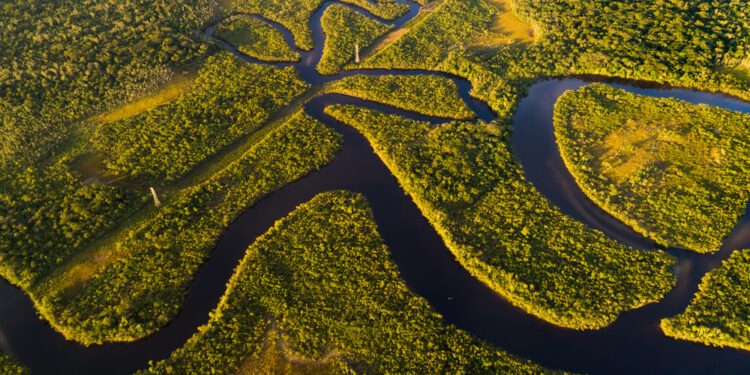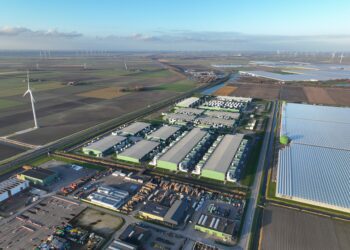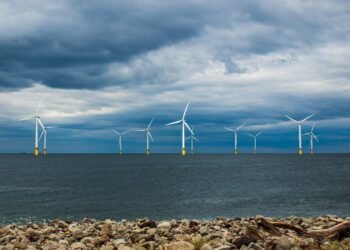When the coronavirus pandemic hit in 2020, Roxana Borda Mamani had to leave Mexico, where she was studying for her degree in rural development and food security, and return to her remote village in the Peruvian Amazon.
At the time, the Indigenous community in Alto Mishagua had neither an internet connection nor a reliable energy source. “How am I going to study?” Borda asked. “With energy from the sun,” replied her friend, a fellow member of the Latin American Observatory for Energy Geopolitics at the Brazil-based Federal University of Latin American Integration (Unila).
Borda began researching the components of an off-grid solar energy system: photovoltaic (PV) panels, a battery, an inverter and a charge controller.
Five years later, her community has a 400W solar system powering a 24-hour satellite internet connection and charging points for phones and torches next to a small school that was set up thanks to the new energy source.
A second phase, due to be implemented this year, will equip households with PV panels, providing the community’s 50 families with regular electricity access and ending their reliance on expensive and polluting diesel generators.
The initiative was developed by Borda and five other students at the Energy Observatory, with the community’s backing, support from the Canadian energy-access charity Light Up the World, and grants.
“Our idea was to be independent [and] promote the autonomy and self-management of the energy and communication systems,” says Borda.
The project is called Aylluq Q’Anchaynin, which means “the energy of the community” in her native Quechua.
More than 16 million people do not have access to electricity in Latin America and the Caribbean – despite often living in the shadow of fossil-fuel extraction projects, as in parts of the Amazon.
Community-driven clean energy systems, such as Borda’s, sometimes called “energy communities”, are a way to tackle the region’s energy poverty and insecurity while also contributing to a just energy transition that puts people first.
Ilan Zugman, regional director for Latin America and the Caribbean at 350.org, an international environmental organisation, says: “The beauty of these community-based projects is that they truly offer social and economic transformation with a much smaller environmental impact than a fossil fuel or large-scale renewable energy project.”
Alejandra Bernal, clean energy transition officer for Latin America at the International Energy Agency (IEA), says the region is well placed for energy communities to grow thanks to laws on self-generation of electricity and decentralised energy being the best solution for connecting isolated areas.
Last year, 65% of Latin America and the Caribbean’s electricity was powered by clean energy, of which 17% was wind and solar – above the global average of 41% and 15% respectively, according to the energy thinktank Ember.
Although solar-generated distributed energy (produced outside the primary grid) is growing fast, particularly in Brazil, “the majority of this renewable energy being added comes from massive wind and solar farms”, says Zugman.
“Clean energy sources are growing, but we run the risk of having a decades-long energy transition that isn’t just, that repeats the negative models of the fossil fuel industry, affecting frontline communities without benefiting them,” he adds.
Read the article by Constance Malleret / Roxana Borda












